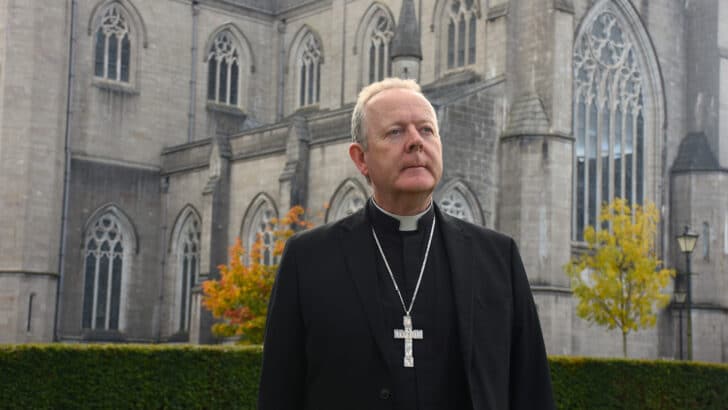Some dioceses and parishes will not survive financially in the future and while there is “pain in letting go” passing on the Faith is more important, the Primate of All Ireland has said.
Simply “ensuring that the next generation of Irish people believe in God” is the reality the Church is facing, not the expensive upkeep of buildings, Archbishop of Armagh Eamon Martin told The Irish Catholic.
“I’m very hopeful about the future but I do realise there is a lot of pain in letting go, there is a lot of worry. You look at the maintenance of buildings and huge churches and the expenses, financially the Church is going to be very, very poor – not to mention the impact of paying the just compensation to people who’ve been abused,” Archbishop Martin said.
“We’re going to find that some parishes, some dioceses perhaps even, are not going to be able to survive financially, and that’s a whole new challenging landscape for us to inhabit.
“But remember the Faith, and the passing on of the Faith, is the really important thing, not the buildings, not the structures, but ensuring that the next generation of Irish people believe in God – you would never have believed that the Archbishop of Armagh would be saying that to you, but that is the reality that we are facing,” he added.
Already many parishes and dioceses are working more closely together across Ireland, with some priests in charge of several parishes and some bishops heading two dioceses.
It is clear that the Pope’s representative in Ireland, Papal Nuncio Archbishop Luis Mariano Montemayor – who began his ministry early last year – sped up the process of bringing dioceses closer together. This can be seen in the effective merger of the Archdiocese of Tuam and Killala and that of Elphin and Achonry in the west of Ireland.
At diocesan level, Archbishop Martin thinks different models will emerge depending on the circumstance.
“I see that sort of rationalisation of resources continuing. I’m not too sure if we have yet properly thought it through. In some ways it’s happening when a diocese becomes vacant that conversations begin. The Dromore situation is different to the situation in say Galway and Clonfert, which is in turn is different to the situation in Tuam and Killala,” he said.
The archbishop asserts he would prefer that what emerges is what is best for evangelisation and that Irish dioceses are not treated like a “big jigsaw”.
“I’m hoping that our ongoing synodal journey and the synodal pathway for the Church in Ireland will enable a lot of that thinking to come through,” he says.
Archbishop Martin insists that for a long time Irish bishops have accepted that there does need to be change – but when the moments arise.
Looking at the situation in Dromore, he says: “It’s difficult for a diocese to say, ‘we’ve been around for 1,000 years, are we going to lose something of our distinctiveness or our identity as a diocese or as a local particular church?’
“And those conversations do need to happen, particularly when we’re talking synodaly nowadays. But sometimes it does take somebody to come in and say, ‘let’s do it now, we need to take these decisions now’.”


 Chai Brady
Chai Brady
